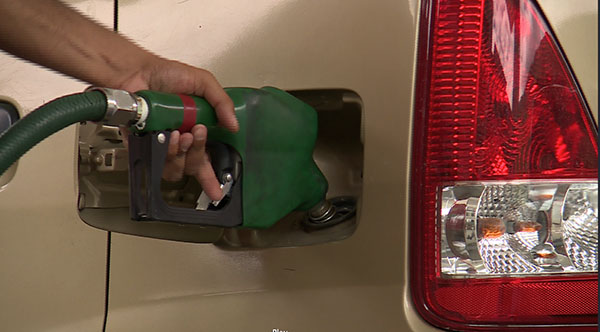 The price of fuel in the country has been increasing since April last year when it fell to as low as Nu 46. It was the lowest in recent times. However, the price of petrol and diesel hit the highest at Nu 77 and Nu 73.46 respectively in July this year. Experts say this will fuel the rate of inflation since everything is dependent on fuel.
The price of fuel in the country has been increasing since April last year when it fell to as low as Nu 46. It was the lowest in recent times. However, the price of petrol and diesel hit the highest at Nu 77 and Nu 73.46 respectively in July this year. Experts say this will fuel the rate of inflation since everything is dependent on fuel.
In Thimphu, petrol costs a little more than Nu 76 a litre as of yesterday. The rate was less than Nu 60 at the beginning of the year. Diesel on the other hand also saw a sharp increase. The price jumped from Nu 57 per litre in January to more than Nu 72 yesterday. The increase, as per an economist, will affect the pricing of goods and services.
“Everywhere in the world, whenever there is a fuel shock, that will create inflation. Say vehicle fuel goes up, the cost of goods transported from Phuentshogling to Thimphu will go up because the vehicle charge will go up. When vehicle charge goes up, the supplier in Thimphu will have to recover from the goods, which means they will increase the prices of goods,” said Damber S Kharka (PhD), an economist.
As Bhutan directly imports fossil fuel products from India, the price of fuel will depend on the Indian economy. However, diesel and petrol are still cheaper in Bhutan than in India due to lower taxes in the country. Today, a total of 10 per cent tax – sales tax and green tax – is levied on petrol and diesel. Moreover, with the introduction of GST in India, the import of fuel into the country has become tax-free.
In India, the prices of petrol and diesel remain high despite the sharp fall in the international crude prices. Economists in India say the central and state governments’ taxes on fuel led to increased fuel prices. Today petrol costs more than Rs 100 per litre in India’s national capital, Delhi, while diesel is charged at almost Rs 90 a litre.
Samten Dolkar
Edited by Sonam









